Following the attack on the Saudi Arabia embassy in Tehran, in January 2016, relations between Tehran and Riyadh soured and under the pressure from Saudi Arabia five other members of the Persian Gulf Cooperation Council including Bahrain, Kuwait, Qatar and the United Arab Emirates chilled their diplomatic ties with the Islamic Republic though Oman stopped short of doing so, only expressing regret over the attack.
On March 27, Jarollah underscored that Kuwait expects the consultations between Tehran and Persian Gulf Cooperation Council (PGCC) to resume after political messages having been exchanged between the two sides.
He said that Kuwait had communicated Iran’s response and written message to senior officials of the Persian Gulf Arab states.
Late in January, Kuwaiti Foreign Minister Sheikh Sabah al-Khalid al-Hamad al-Sabah visited Tehran to deliver the Kuwaiti Emir’s letter to the Iranian President Hassan Rouhani on relations between Iran and the Persian Gulf Arab countries.
Now the Islamic Republic is responding to the call in a bid to create cordial relations with Persian Gulf littoral states.
In the Middle East plagued with religious and ethnic conflicts and interference by foreign forces, the Islamic Republic of Iran has always tries to deal with regional issues, including terrorism and extremism, by creating collective mechanisms and amending regional cooperation.
Cordial relations
The President Hassan Rouhani’s February visits to Oman and Kuwait in the present critical situation in the region has indicated that the trio are determined to expand cordial relations in the two sides of the Persian Gulf strategic waterway.
President Rouhani’s day-long visit to the two regional states were made upon official invitations of Sultan of Oman Qaboos bin Said al Said and Kuwaiti Emir Sheikh Sabah Ahmad Jaber al-Sabah.
The Sultan of Oman and the emir of Kuwait have always been calling for broadening relations with Iran and have always tried to form a collective mechanism with Iran’s help to discuss regional peace and security and meet common concerns and threats in the region, including terrorism and extremism, with the participation of Iran and other regional countries.
Undoubtedly, President Rouhani visits demonstrate a will on the two sides of the Persian Gulf to mend fences and resume ties that has appeared to become increasingly sour, following developments over last year.
President Rouhani’s visits on February 15 to Oman and Kuwait were widely welcomed by the people, officials and mass media of the regional states and this has indicated that the provocative policies of those trans-regional countries have apparently resulted in an opposite way and that the regional people and governments are interested to have expanded cooperation.
Praising Sultan of Oman’s constructive role for settling regional issues, President Rouhani expressed hope that the war in Yemen, which has taken a heavy toll on the country's facilities and infrastructure, could be ended as soon as possible with the constructive and humanitarian approach of all belligerent parties.
While in Kuwait City, President Rouhani discussed major regional developments in a meeting with Emir of Kuwait and also discussed ways for strengthening mutual cooperation.
Meanwhile, the Emir of Kuwait gave great significance to the views discussed by President Rouhani which were inspired by an Islamic brotherhood spirit.
The Kuwaiti Emir also said he was satisfied with Tehran’s constructive approach to ease tensions among neighboring Arab countries.
Saudis in Yemen quagmire
In spite of the far-reaching support of the Western allies, the Saudis are stuck in Yemen in a quagmire similar to that being experienced by the US in Afghanistan.
On January, Iranian Foreign Ministry dismissed the recent “insulting” claims by Saudi Foreign Minister Adel al-Jubeir against the Islamic Republic, saying such allegations are aimed at distorting the existing realities in the Middle East.
“It is Saudi Arabia, which has been the breeding ground for the emergence and growth of terrorism in the region over the past years,” Iran’s Foreign Ministry Spokesman Bahram Qassemi said.
He added that Saudi Arabia has been carrying out an inconclusive act of military aggression against Yemen and committed war crimes against the defenseless people of the impoverished country for nearly two years.
Jubeir’s justifications for Al Saud's brutal attacks against Yemeni women, children and civilians show that Riyadh has suffered a heavy defeat against the Yemenis’ strong determination to advance their objectives in the region.
Qassemi emphasized that the Saudi foreign minister’s ceaseless blame games cannot erase the history of creation and spread of extremism and deviant schools of thought in Saudi Arabia with the support of Al Saud.
Saudi Arabia has been incessantly bombing Yemen since March 2015. Based on latest tallies, the war has claimed the lives of over 11,400 Yemenis, including women and children. It has also taken a heavy toll on Yemen’s infrastructure.
For long, the Middle East has witnessed several conflicts between different factions and ethnic and religious groups. The terrorism and extremism, though remain to be effective tools in the hands of big powers to control the region, currently is spilling over to other parts of the globe, from Paris to Ohio, providing big powers a pretext to deploy forces in the region and go on with their threats.
Under such an atmosphere and in the absence of any regional constructive pattern to foster trust and cooperation in the region, there is a need for a player to step in and bring together all other regional players to create peace and stability.
Here, the bigger picture for Iran’s engagement with the Persian Gulf Arab states gradually starts showing up; an engagement based on a doctrine advocating a belief that the destiny of the regional nations, their security and any attempts to protect their interests are blended and interwoven.
It is up to the regional nations to put in place collective mechanisms and address common issues as well as common threats.
Iran has always followed to achieve a win-win policy in its ties with other regional players. The security Iran is trying to establish is, against all the Iranophobia propagated in the region, is going to benefit all the countries and not solely the Islamic Republic, IRNA wrote.
President Rouhani’s visit to Oman and Kuwait, in a broader sense and examined from a broader perspective, is going to put an end to the idea that Iran is a regional or global threat; that Iran is not an enemy.


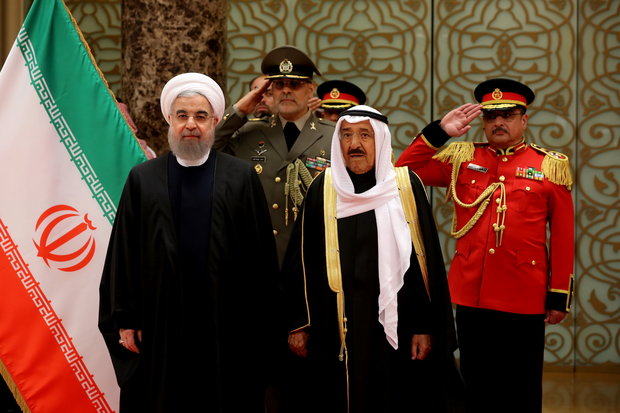




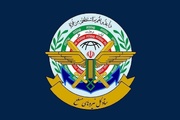
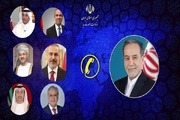

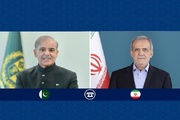
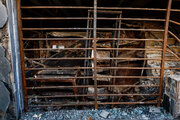
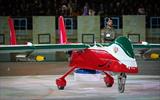


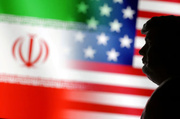
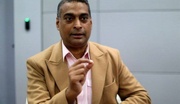




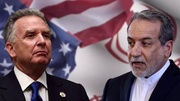
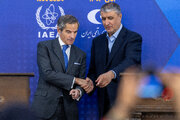



Your Comment